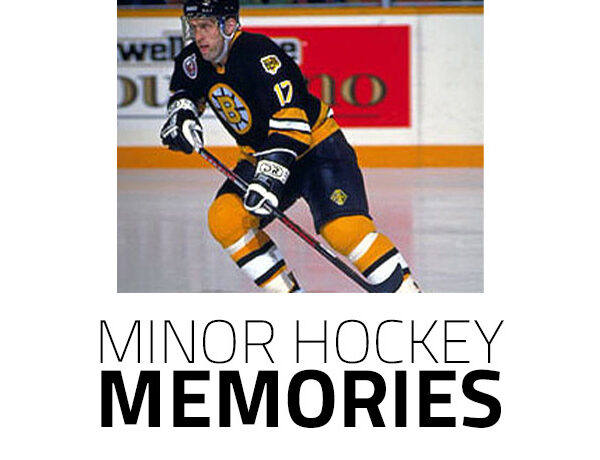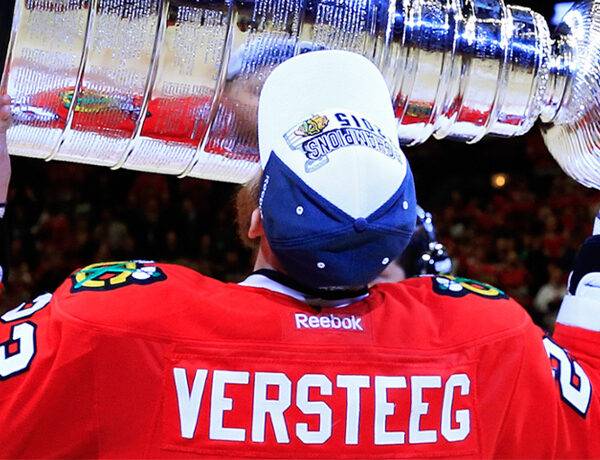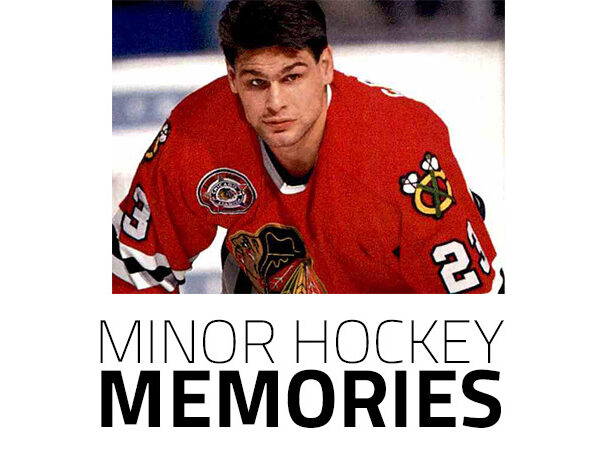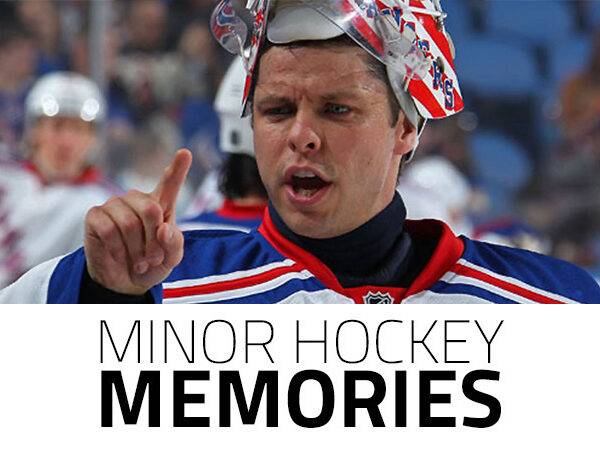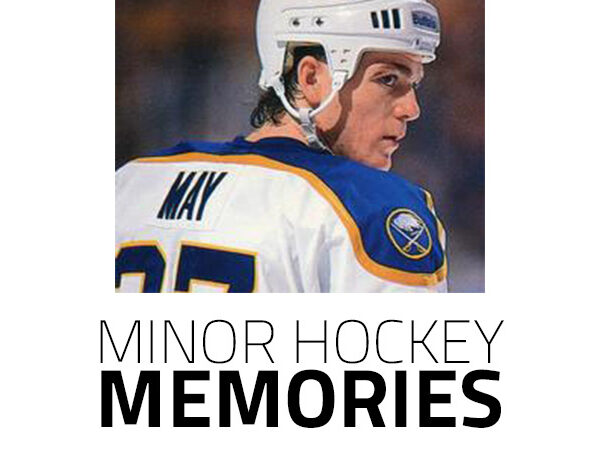Elite Level Hockey recently asked a number of former professional players to reminisce about their favorite youth hockey memories, and to discuss what they would change about today’s youth hockey culture.
Terry Ryan was the Montreal Canadiens first-round pick and the eighth overall selection at the 1995 NHL Entry Draft.
A native of Mount Pearl, Newfoundland, Rvan represented Canada at the ISBHF ball hockey tournament and has been a part of teams that captured both world and national championships.
He now spends his time acting and can currently be seen as Ted Hitchcock on the hit comedy, Shoresey.
WHAT ORGANIZATION DID YOU PLAY MINOR HOCKEY FOR AS A KID?
RYAN: The Mount Pearl Blades in Mount Pearl, Newfoundland.
DID YOU ALWAYS PLAY AT THE HIGHEST LEVEL OF HOCKEY FOR YOUR AGE?
RYAN: After I was 11, my dad coached a Junior B team. I was on the ice a lot because of that and we all hung out quite a bit in Mount Pearl. We played all the sports, but there was never a lack of ice time and from 10 on, I improved quite a bit, but before that I wasn’t even much interested, to be honest.
WHAT IS YOUR FAVORITE MEMORY OF YOUTH HOCKEY?
RYAN: The Quebec Peewee Tournament. We went there in 1991 and 1992. If you follow my Instagram, you will see that the team from 1989-‘90 was inducted into the Mount Pearl Sports Hall of Fame.
Outside of being successful at that tournament — the most successful from Newfoundland — it was just fun. There was a perfect combination of competition and fun. It was great that we won, but had we not scored a goal we would have had a blast. It was a perfect minor hockey trip.
WHAT WAS YOUR FAVOURITE PRACTISE DRILL AS A KID?
RYAN: No doubt 3-on-3. Pushing yourselves, coach would blow it down if you’re making a mistake. I like the freedom to do what I want to do. It’s good work and friendly competition. I like 3-on-3 amongst players, amongst friends, competitive friends, and teammates.
DID YOU PLAY MINOR HOCKEY AGAINST ANY NOTABLE PLAYERS?
RYAN: Growing up, Daniel Cleary and Harold Druken — who both played in the NHL — and only because we had tournaments on the mainland. Growing up in Newfoundland, we didn’t get much competition — which is why I left at 14 to play Junior — but I did play a little bit of Midget out in Quesnel, B.C. and came across some great players that would soon be in the WHL and then the NHL — Jason Weimer and Adam Deadmarsh.

Terry Ryan (second from the left) stars in SHORESY — streaming exclusively on Crave in Canada and Hulu in the U.S. — a spin-off of its smash-hit predecessor, LETTERKENNY.
DO YOU REMEMBER YOUR FAVOURITE STICK?
RYAN: My favourite stick was a white and red classic Gretzky Titan. It wasn’t the best stick, it was my favourite because Wayne Gretzky used it. When I switched, I quickly realized that the Sherwood Feather Light at the time was the lightest wood stick, at least the lightest one that I got my hands on. Eventually, of course, that changed to aluminum and everything else, but for five or six years growing up, it was definitely the classic Gretzky Titan.
HOW MUCH OF A ROLE DID YOUR PARENTS PLAY IN YOUR HOCKEY GROWING UP?
RYAN: My mom managed the teams. My father played professional hockey himself for the Minnesota Fighting Saints, amongst others. He didn’t put a lot of pressure on me. His role, I guess, was to make sure that I wasn’t feeling too pressured. He only came to games when I asked him to and he gave me advice from afar. He never coached my teams, just let me grow up on my own and navigate my own way around my hockey journey, which I appreciate.
HOW MUCH OTHER HOCKEY DEVELOPMENT DID YOU DO OUTSIDE OF YOUR REGULAR TEAM?
RYAN: Not a whole lot. We played street hockey every single day and if we could get the ice we’d get it. It was a lot of practice, but it was just a lot of time put in amongst friends — it didn’t feel like practice. As far as specialized camps, my dad ran one for a week or two in the summer with a guy named Paul Boutilier, who played for the New York Islanders and had a couple of Stanley Cups. That was interesting, but it was more to get together with the boys.
DID YOU PLAY HOCKEY ALL YEAR LONG OR DID YOUR PLAY OTHER SPORTS IN THE SUMMER?
As soon as hockey was over, I looked forward to getting out on the baseball diamond and the soccer field.
I played ball hockey, that’s a little bit different, but I felt that was enough. I knew how to skate. Ball hockey was keeping me on my toes when it came to the mental side of the game, and it’s actually harder to play defense. I feel that playing ball hockey my whole life, I became a decent defensive player when I wanted to be because it’s easier to skate than it is to run, and the ball hockey offensive zone is much bigger, so it really helped me.
For the most part, it was baseball and soccer in the summer. If it was any other hockey camp, it would be right before I started up again in September.
I might have been in pro hockey before I put on my skates in July. Even then, it was few and far between.
WHAT IS THE ONE THING YOU WOULD CHANGE ABOUT MINOR HOCKEY RIGHT NOW?
RYAN: It would be parents living through their kids and expectations.
I have hockey schools here and there, and when I do, parents often ask me “what does little Johnny have to do to make the NHL?” and to start, I would say let’s hope he/she has fun.
Outside of that there are a lot of success stories — and success is in the eyes of the beholder.
Players can travel all over the world and never play a game in the NHL. They can get a degree through hockey. They can live on their own and learn to grow up from boys to men. I think parents need to realize that the goal isn’t always the NHL.
It’s a very small percentage of people that get to play in the NHL, but tens of thousands get to experience hockey after the minor hockey level and I’m sure a lot of them consider their careers a success, including myself.
Whether it’s Pro or Junior or Midget, the longer you stay on board, I feel you’re using those attributes you’re learning in the dressing room off the ice, which can only be a good thing. I do feel that the attributes it takes to be successful in and around a dressing room are the same ones it takes to be successful in real life. I think hockey imitates real life in many, many ways.
So, what would I change? The parent’s expectations.
More Minor Hockey Memories …
Its no surprise that Stanley Cup champion Dave Reid’s favorite drills as a kid involved shooting.
“It was the 90s, man!” Kris Versteeg looks back at his time playing in Lethbridge and his jump to the WHL.
Nothing was more fun for former NHLer Stu Grimson than playing knee hockey in the hotel hallways at a tournament.
Former NHL goaltender Martin Biron recalls the thrill of playing in the Quebec Peewee Tournament as a local kid.
NHLer Brad May looks back on the best parts of playing minor hockey as a kid.
The post Minor Hockey Memories: Terry Ryan appeared first on Elite Level Hockey.

